Public History Program
What is Public History?
Public history brings academic knowledge of the past outside of a traditional classroom and into public settings. This growing field focuses on the practical application of history to meet the needs of the community through museums, federal and state historic sites, media productions and other venues.
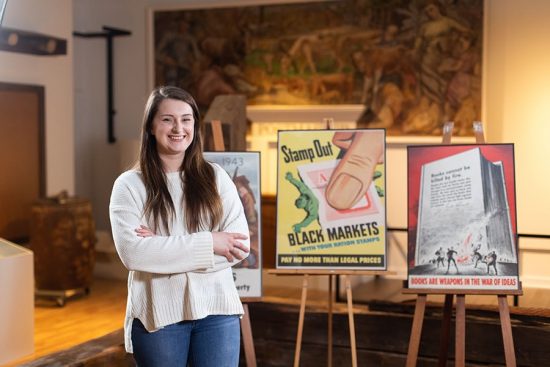
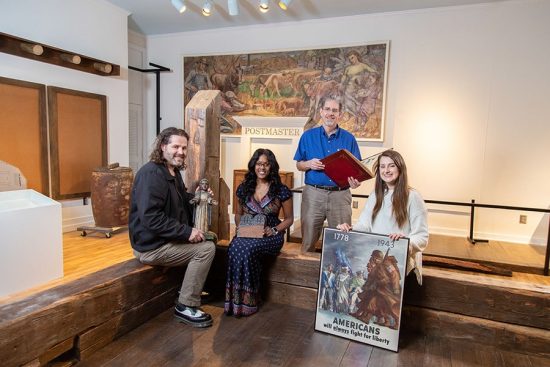
Why Study Public History?
Studying public history prepares you for a career in shaping and enriching the public’s understanding of history. Through work in museums, libraries, cultural tourism, historic preservation, and other related fields, you will learn how to make history accessible and meaningful for audiences of different ages, races and ethnicities, educational backgrounds, and life experiences.
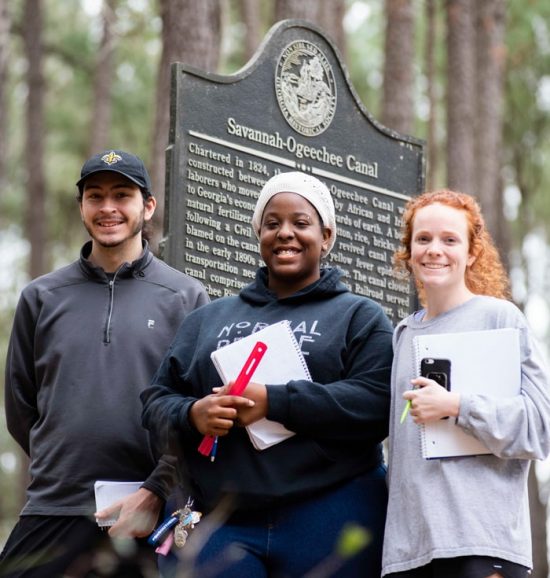
The Department of History at Georgia Southern University has developed partnerships with numerous state and national parks, historic sites, archives, and museums granting you access to unique training and internship opportunities throughout the Statesboro / Savannah region. Recent initiatives have also allowed Georgia Southern students to collaborate with the Peace Officers Association of Georgia, the Willow Hill Heritage and Renaissance Center, and other community interests throughout the region and state. You can take advantage of opportunities at the Georgia Southern University Museum and Henderson Library, to train in museology, archives and new media. Additionally, you’ll be able to work in the History Lab, an experimental cross-media knowledge space dedicated to game theory, design, fabrication, and audiovisual production.
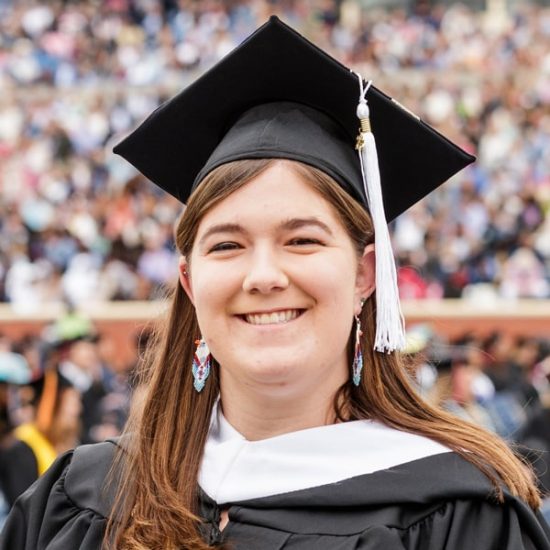
“Other schools told me I could be a teacher’s assistant,” Watrous said. “But when I asked them about opportunities to volunteer, intern, work with public historians or even the Park Service, they said no. Georgia Southern said yes, so I decided this was the place for me. For undergrad it was home, but now it was a new opportunity and I wasn’t seeing it as my home, I was seeing it from this new lens of somewhere I can grow my network and learn.”
— Alyssa Watrous
Public History Concentration – M.A. History
Format: In person on the Statesboro Campus
Credit Hours: 33
Within the Master of Arts in History degree program you can pursue a concentration in Public History. This option is ideal for those students desiring to work in careers in museums, archives, historic sites, and other public venues. This concentration has also proven a viable pathway for students seeking careers as classroom teachers as it is still grounded in the critical thinking, communication, and analytical skills needed to excel in the professional aspects of teaching, writing, and pursuing research in history. As an added value, this concentration provides opportunities to take a number of hands-on, elective courses for customized training in the professional fields of your choice. Indeed, our graduates work in a number of important historic sites throughout the region and beyond.
Public History Graduate Certificate
Format: In person on the Statesboro Campus
Credit Hours: 18
For students who do not want to earn the master’s degree, the program offers an 18-credit professional certificate. The Public History Graduate Certificate program gives you the opportunity to develop your expertise in the areas of your choice. You will understand the theories and practices behind applied history professions, including museums, historical societies, historical sites, heritage tourism and historic preservation. The Public History Graduate Certificate is ideal for students who hold an undergraduate degree in history and are seeking an abbreviated graduate experience or further professional development.
Jobs in Public History
The public history program prepares you for an alternative career path beyond traditional teaching. You’ll be prepared for jobs in public history, such as:
- Archivist
- Museum curator
- Conservator
- Historic preservationist
- Cultural resource manager
- Oral historian
- Historic site interpreter
- National park ranger
- Teacher
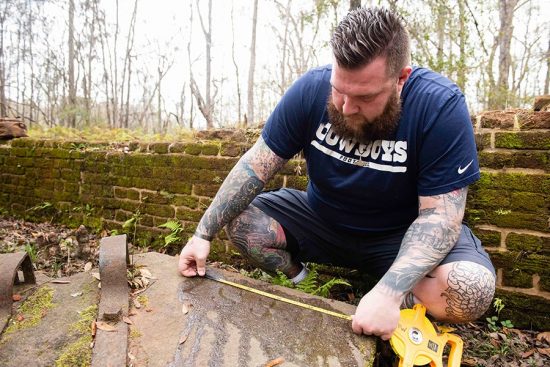
Have Questions? Contact Us!
Program Coordinator
Dr. Michael Scott Van Wagenen
Phone: 912-478-5466
email: mvanwagenen@georgiasouthern.edu
Department of History – Statesboro Campus
Interdisciplinary Academic Building, #3007
P.O. Box 8054
Statesboro, GA 30460-8054
Phone: 912-478-4478
Fax: 912-478-0377
Email: history@georgiasouthern.edu
Last updated: 3/2/2023